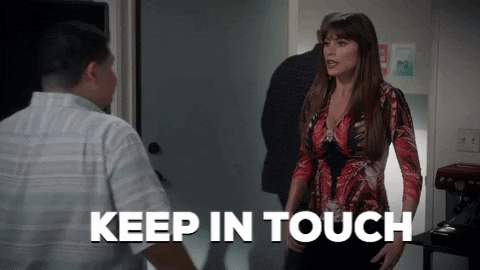It's tempting to quit your job in a blaze of glory.
 Burning bridges may seem satisfying in theory, but when it comes to leaving your job, what's the best way to quit without ruining your professional relationships and reputation?
Burning bridges may seem satisfying in theory, but when it comes to leaving your job, what's the best way to quit without ruining your professional relationships and reputation?
Before You Quit
When you really dislike your job, you may fantasize about the most dramatic rage-quitting.

Unless you're in immediate danger, most of the time, you can afford to take some time before quitting.
Remember, don't quit a job because of temporary difficulties — but if you're sure about it, have a plan first.

What's Your Plan?
💡 Think about what you want to donext!
Leaving your job can be a good opportunity for you to reflect, and decide on the best path for you going forward.
💻 Other job opportunities
It might be safer to have other jobs already lined up before quitting so that you don't need to worry about not having an income. It also prevents having gaps in your resume!
📙 Contact potential references
It might be helpful to let some of your colleagues in your current position know that you're looking for a new job — they might know someone who's hiring. Just make sure you trust they can keep things discreet so your current employer doesn't find out you want to quit.
💰 A financialplan
Job searches can take a long time. In the meantime, you need some savings to cover your basics in case you can't find a new income source in a short amount of time.
Scenario
Lucas just started a new job. However, his new boss is very demanding, and he often has to work overtime in order to complete all the tasks given to him. He also feels that he's not compensated well enough.
Lucas is thinking of quitting. Which are his best courses of action?
A. Complain to his colleagues and talk about how much he hates his boss.
B. Purposefully not finish all the tasks, or do a lousy job, as "revenge".
C. Have a conversation with his boss about it to let them know his concerns about working overtime and salary issues.
D. Look for other job opportunities and start saving more money.
Quiz
Which is the best course of action Lucas should take?
When It's Time To Quit
Depending on your company policy, give your employer enough notice (usually 2 weeks in the US and Canada) about your departure.
The 2 week period before you leave is good for any handover that you may need to do, e.g. training your successor.

Tell your manager about your resignation in person if possible. At the same time, have your formal resignation letter ready, and send it to both your manager and HR (if available).
Your letter should be polite, thankful, and brief:
Due to my recent decision to pursue different career opportunities, I will be resigning from my current position. I thank you for your leadership and guidance during my time at the company, and wish you and the team success in the future.
After You Quit
Thank your employer for the opportunity.
 Give constructive feedback, especially if there's an exit interview. This is a good opportunity to let your employer know how they can improve, and potentially help any future employees.
Give constructive feedback, especially if there's an exit interview. This is a good opportunity to let your employer know how they can improve, and potentially help any future employees.

Stay in touch if possible. You never know if you'll need them in the future.

No matter how bad your experience is, try not to trash talk about your previous employer with your new employer. They'd wonder if you'll do the same thing about them in the future!
Take Action
While quitting a job can be tough, it's necessary before starting something even more exciting. When you're ready to say goodbye:

Your feedback matters to us.
This Byte helped me better understand the topic.

